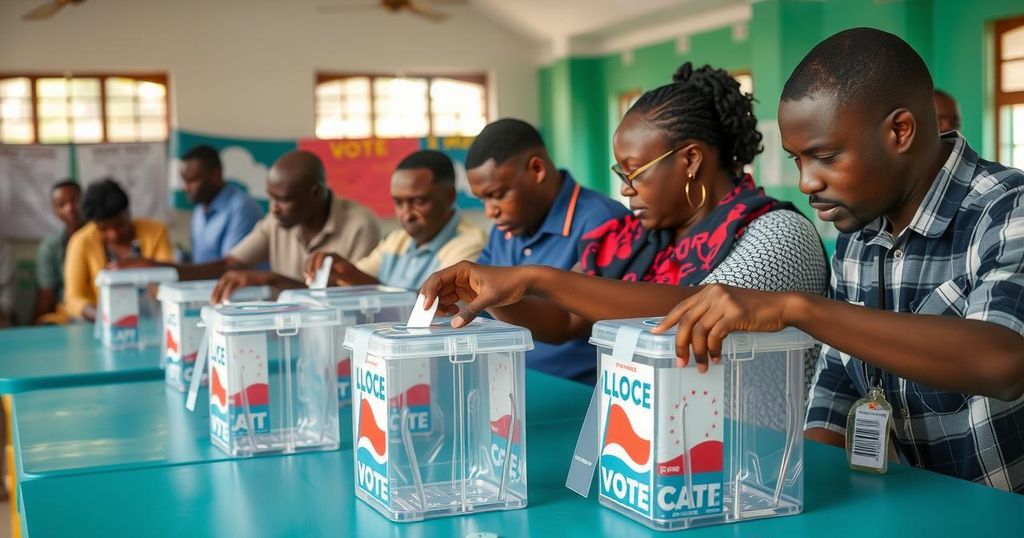World news
ABDALLAH SAMBI, AFRICA, AUSTRALIAN ASSOCIATED PRESS, AZALI ASSOUMANI, COMOROS, ELECTION FRAUD, GOVERNANCE, GOVERNMENT, HAMIDOU KARIHILA, HOPE OF THE COMOROS, INDIAN OCEAN, INDIAN OCEAN ARCHIPELAGO, JUWA, NO, NOUR EL - FATH, OPPOSITION, POLITICS, PRESIDENTIAL ELECTION, REUTERS, SUPREME COURT
Marisol Gonzalez
0 Comments
Comoros Voters Engage in Parliamentary Elections Amid Controversy
Voters in Comoros are electing members to the 33-seat parliament amidst claims of election irregularities related to the previous presidential elections. Approximately 338,000 citizens are registered to cast their ballots with nearly 100 candidates participating. President Azali Assoumani’s critics are divided over the elections, leading to calls for boycotts while others aim to expose the administration’s flaws. Election results are expected by Friday.
Voters in the Comoros archipelago are participating in parliamentary elections for the 33-seat legislature amidst allegations of misconduct following last year’s presidential elections. Approximately 338,000 registered voters have arrived at polling stations, where nearly 100 candidates vetted by the Supreme Court are vying for the seats. Critics of President Azali Assoumani, who has held power since 1999, speculate on his intentions to secure his son’s political future while some opposition factions call for a boycott of the elections. Results are anticipated by Friday, with sentiments within the opposition highlighting the fragility of the current regime.
The political climate in Comoros has been turbulent, particularly after President Azali Assoumani’s controversial re-election in 2022, which was denounced by opposition leaders as fraudulent. Comoros has not held parliamentary elections since January 2020, and the recent voting event marks an important moment in the nation’s ongoing struggle between the ruling party and its adversaries. Assoumani, who gained power through a coup, has faced criticisms regarding his authoritarian style, particularly following a 2024 decision to grant significant powers to his son. Opposition groups, including Juwa, a party led by a former president, are divided on the approach to the elections, prompting discussions about the legitimacy of the voting process and the survival of democratic practices in the country.
The upcoming parliamentary elections in Comoros represent not only an opportunity for citizens to engage in the electoral process but also a pivotal moment in the political landscape influenced by ongoing allegations against President Assoumani’s regime. With the opposition split on their strategy, and the ruling party labeled as weakened, the results of this election may significantly affect the future trajectory of governance in Comoros. The outcome may either reinforce the current administration or stir further political unrest depending on international perceptions and local sentiments.
Original Source: www.begadistrictnews.com.au




Post Comment